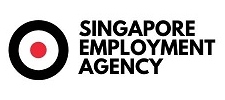Singapore has long established itself as a premier global hub, attracting talent from around the world with its dynamic economy, political stability, exceptional quality of life, and strategic location offering gateways to Asia. For foreigners considering a career move to the Lion City, this comprehensive guide navigates the essential aspects of working in Singapore for foreigners.
Work Visa for Working in Singapore as a Foreigner
The cornerstone of legally working in Singapore for foreigners is securing the appropriate work visa or pass. The Ministry of Manpower (MOM) is the governing body responsible for issuing these passes. Key points include:
1. Common Pass Types:
-
- Employment Pass (EP): For foreign professionals, managers, and executives who meet criteria including a minimum qualifying salary (which varies based on age, qualifications, and experience) and pass the points-based Complementarity Assessment Framework (COMPASS). COMPASS evaluates both individual and firm-related attributes.
- S Pass: For mid-skilled foreign technicians. Applicants must meet salary requirements, and employers are subject to quotas and levies for S Pass holders.
- Other Passes: Depending on circumstances, passes like the Dependant’s Pass (DP) for eligible family members of EP/S Pass holders, the Long-Term Visit Pass (LTVP), or specific training passes might apply.
2. Employer Sponsorship:
Generally, the application for EPs and S Passes must be sponsored and submitted by the prospective employer in Singapore.
3. Eligibility & Process:
It’s vital to thoroughly understand the specific eligibility criteria, required documentation, application procedures (usually via MOM’s online portals), and the validity period for each pass type before accepting a job offer.
Employment Regulations: Know Your Rights and Obligations
Singapore’s Employment Act provides the main legislative framework governing employment relationships. While certain sections may not cover all managers/executives above a specific salary threshold, it sets baseline standards for many employees regarding:
1. Key Terms:
Working hours, overtime pay, mandatory rest days, public holidays, annual leave, and sick leave entitlements.
2. Contracts:
Always ensure you have a clear, written Key Employment Terms (KETs) document or employment contract outlining your role, responsibilities, salary, working hours, leave entitlements, termination clauses, and other benefits.
3. CPF:
Foreigners on Employment Passes or S Passes are generally exempt from mandatory contributions to the Central Provident Fund (CPF), Singapore’s national savings scheme. This is important when comparing salary packages.
4. Termination:
The Act outlines notice periods required for termination by either party.
5. Dispute Resolution:
Mechanisms like the Tripartite Alliance for Dispute Management (TADM) and the Employment Claims Tribunals (ECT) exist for resolving salary-related or wrongful dismissal disputes.
Job Search Tips for Foreigners Working in Singapore
Finding the right opportunity requires a proactive and tailored approach:
1. Online Portals:
Leverage popular platforms like LinkedIn, JobStreet, Indeed, Glassdoor, and the official government portal MyCareersFuture.sg.
2. Networking:
Singapore’s business community values connections. Attend industry events (virtual or physical), join professional associations, and utilise platforms like LinkedIn to build your network. Informational interviews can be very insightful.
3. Recruitment Agencies:
Reputable employment agencies specializing in your field can provide market insights, access hidden opportunities, and assist with the application process.
4. Tailor Your Application:
Customize your CV/resume for the Singapore market – keep it concise (typically 2 pages max), highlight quantifiable achievements, and clearly state your skills relevant to the specific job description.
Workplace Culture when Working in Singapore for Foreigners
Singapore boasts a diverse, multicultural workforce. While English is the common business language, navigating cultural nuances enhances collaboration:
1. Professionalism:
Punctuality is highly valued. Dress codes can vary by industry but tend towards smart-casual or formal business attire.
2. Communication:
Communication can sometimes be indirect compared to Western cultures. Building rapport and showing respect are important.
3. Hierarchy:
Workplace structures can sometimes be more hierarchical; understanding reporting lines is key.
4. Adaptability:
Being open-minded, respectful of different cultural backgrounds (Chinese, Malay, Indian, Eurasian, and other expatriates), and adaptable are essential traits for success.
Cost of Living and Accommodation
Singapore is known for its high quality of life but also a relatively high cost of living:
1. Accommodation:
This is often the largest expense. Options range from renting rooms, HDB flats (public housing – eligibility criteria apply for non-citizens), or private apartments/condominiums, and landed properties, with significant cost variations based on location, size, and facilities. Research neighbourhoods thoroughly.
2. Other Costs:
Factor in utilities, groceries, transportation (Singapore has an excellent public transport system), healthcare, and leisure activities when budgeting.
Taxation Essentials
Foreigners working in Singapore are subject to personal income tax administered by the Inland Revenue Authority of Singapore (IRAS):
1. Progressive Rates:
Singapore employs a progressive resident tax rate system, generally considered competitive internationally. Non-residents may be taxed differently.
2. Tax Residency:
Your tax liability depends on your tax residency status, often determined by the number of days you spend in Singapore (e.g., the 183-day rule). Tax residents enjoy certain reliefs.
Obligations: Understand your filing obligations and deadlines. IRAS provides comprehensive information on its website.
Integrating and Settling In
Beyond work, settling into life in Singapore involves:
1. Community:
Explore expatriate clubs, social media groups (e.g., on Facebook), sports teams, or special interest groups to connect with others and build a social network.
2. Local Exploration:
Embrace the opportunity to explore Singapore’s diverse food scene, cultural heritage sites, green spaces, and efficient public transport.
Tips for Foreigners Moving to Singapore for Work
- Start Early: Visa processing and job searching take time.
- Network Actively: Build connections before and after arrival.
- Research Thoroughly: Understand the job market, living costs, and local norms.
- Prepare for Interviews: Preparation is key for a successful experience when working in Singapore for foreigners. Practice responses and understand employer expectations.
- Engage Professional Help: Consider using reputable employment agencies like Little Big Employment Agency Pte Ltd or relocation specialists for support.
Singapore presents a dynamic and potentially highly rewarding career destination. By arming yourself with knowledge about the employment landscape, regulations, culture, and practicalities of living here, and preparing diligently, you significantly enhance your chances of a successful and fulfilling experience working in Singapore as a foreigner.
Yours sincerely,
The editorial team at Little Big Employment Agency Pte Ltd

